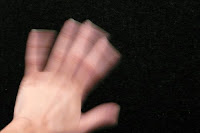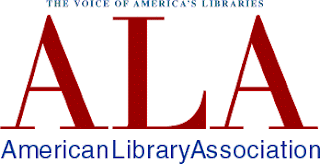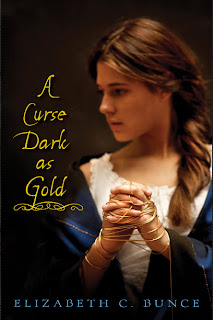
Raising hand. Waving hand. Frantically. We have some Totally Important Posts!
Brooke Taylor's Undone and Lisa Schroeder's I Heart You, You Haunt Me have been nominated for ALA Quick Picks for Reluctant Young Readers. Double congratulations!
What Shelf Elf has to say about Elizabeth C. Bunce's A Curse Dark as Gold: "Highly recommended." And, Shelf Elf, thanks for posting the video too!
Others adoring fans (in alpha order) of A Curse Dark as Gold: Bookshelves of Doom, Bookwyrm Chrysalis, Miss Erin, Sarah Miller,
And Jennifer Bradbury's Shift is a Richie's pick.
Wow! Go Class of 2k8!
Viewing: Blog Posts Tagged with: elizabeth c bunce, Most Recent at Top [Help]
Results 1 - 6 of 6
Blog: 2k8: Class Notes (Login to Add to MyJacketFlap)
JacketFlap tags: elizabeth c bunce, jennifer bradbury, jody feldman, brooke taylor, lisa schroeder, A Curse Dark As Gold, The Gollywhopper Games, i heart you you haunt me, Shift, undone, ALA, Add a tag
Blog: 2k8: Class Notes (Login to Add to MyJacketFlap)
JacketFlap tags: ALA, YALSA, elizabeth c bunce, jody feldman, A Curse Dark As Gold, The Gollywhopper, Add a tag

We just got word that ... drum roll, please ...
A Curse Dark As Gold by Elizabeth C. Bunce
and
The Gollywhopper Games by Jody Feldman
were nominated for the American Library Association's Best Books for Young Adults award!!!
Yowzer! We're so proud!!
Blog: 2k8: Class Notes (Login to Add to MyJacketFlap)
JacketFlap tags: group marketing, elizabeth c bunce, Kristin Tubb, elizabeth c bunce, Kristin Tubb, group marketing, Add a tag
T.I.P. "Give a wave" to Kristin O'Donnell Tubb. Read RaeAnn Parker’s fun interview to see what we mean!
"Give a wave" to Kristin O'Donnell Tubb. Read RaeAnn Parker’s fun interview to see what we mean!
Now, back to group marketing. Today, we hear from Elizabeth C. Bunce, author of A Curse Dark As Gold. Elizabeth, being a part of The Class hasn't been a curse, has it?
Of course not! For me, the real value—far beyond publicity or fame or the big bucks (ha, ha)—is in having somebody to share the journey with you, someone you can compare notes with. The publishing industry is so intricate, and authors are often the last people to know what's going on with their books… having people in exactly the same boat as you, to say, "Oh, yes, that happened to me, too," has been invaluably reassuring on this crazy journey!
Regina Scott, author of La Petite Four, adds this:
Everyone in the class has a talent, many that I don't personally have. I'm a total MySpace baby, but Laurel is showing us the way. I never even read blogs until I met Marissa; now we collaborate on one. So, I'm learning personally, and I'm seeing my words go out in ways I could never accomplish alone.
More tomorrow...
Blog: Miss Erin (Login to Add to MyJacketFlap)
JacketFlap tags: elizabeth c bunce, fairy tales, elizabeth c bunce, Add a tag
 Elizabeth C. Bunce is the author of the newly-released A Curse Dark As Gold, which is a retold version of the fairytale Rumpelstiltskin. Read my complete thoughts on this magical book here. I was very excited to have the opportunity to interview Elizabeth, since I loved her book so much!
Elizabeth C. Bunce is the author of the newly-released A Curse Dark As Gold, which is a retold version of the fairytale Rumpelstiltskin. Read my complete thoughts on this magical book here. I was very excited to have the opportunity to interview Elizabeth, since I loved her book so much!
When did you first decide you wanted to be a writer?
I never looked back, and I've been writing seriously ever since.
Which came first: the general idea to retell a fairytale, or the idea for A Curse Dark as Gold specifically?
They came hand-in-hand, actually. I've always been a fan of Robin McKinley, Patricia McKillip, the Terri Windling-Ellen Datlow anthologies, and other writers who work with retellings. My first finished novel (conceived of shortly after the grand epiphany, but not written for another ten years) was a retelling of a Greek myth, and I worked with retellings in short pieces for years, all while also playing with some high fantasy and other things. CURSE was born not as an idea for a novel, actually, but as an exercise to combat insomnia. One night in the summer of 2002, I had trouble falling asleep, so I played one of my favorite games: "What if?" What if I were to retell "Rumpelstiltskin?" (chosen entirely at random, I should point out)--what would it be like? The first thing I knew was that the gold Rumpelstiltskin spins should be gold thread, and as a needlewoman, it was a natural development to set the story in a textile mill (instead of the grist--flour--mill of the fairy tale).
(Actually, if you want to know The Real Truth, my first fleeting idea was to set the story in the pulp and paper mills of Alaska during the 1980s, but I knew I wasn't the right person to write that story. But textile mills and gold thread? That was a natural fit.)
By the time I started fleshing out the details, I got pretty excited, and thought I might really be onto something--I might have the germ of a real book here. The next day I did something I'd never done before: shared the idea with my husband. When I saw his reaction, I knew I was right. Work on the book that was to become CURSE began immediately.
Were some of the prominent themes in Curse (such as gold, names, threads...) apparent right away when you started writing the book or did they work themselves in later?
I knew straightaway that names would be important, as I mention in the Author's Note. In the fairy tale, the heroine doesn't have a name--she's known only as "the miller's daughter" or "the queen." So many familiar fairy tales are named for their protagonists: "Jack and the Beanstalk," "Sleeping Beauty," "Cinderella," etc. But "Rumpelstiltskin" is named for the villain, and the heroine is anonymous, which fascinates me. I liked the idea of playing with a world where names conferred destiny in a way, where names are literal. I think this theme got other themes layered and heaped over it a bit during the writing process, and it ended up forming more of a backdrop for the story than anything, but that's what I started from (in fact, the original title of the book was Charlotte Miller, for exactly this reason: I wanted to give the miller's daughter back her name and identity, and let her tell the story in her own words).
Gold as a theme in "Rumpelstiltskin" I think is almost inevitable, and especially in CURSE, where the plot hinges so heavily on the financial straits of the heroine, it just developed naturally. I needed a character to fill the role of the king--someone who had real power over Charlotte's life--but I find the idea of marrying someone who's just been threatening to kill you kind of distateful. Giving her a banker--who has power over her livelihood--seemed a more palatable alternative, and allowed me to make Randall a much more sympathetic figure than the king in the fairy tale is allowed to be.
And threads? There will always be threads running through my life and my stories; I've had a needle in my hand as long as I can remember. And, of course, Charlotte has that sensibility also, so it was very natural for her to see that metaphor running through her story.
Oh, mercy. This is such a hard question--where does the author leave off, and the character begin? I spent so much time inside Charlotte's head that I think she really began to rub off on me--her pet phrases, her mannerisms... I'm cautious, like she is, definitely--I don't have Rosie's gung-ho, take-no-prisoners attitude. I share her love for tradition and the old in our lives--it would be very easy for me to fall in love with Stirwaters and never want to leave. And I also probably share some of her sense of exasperation with the world. My husband says "determination," but I think that's one of the things I learned from Charlotte.
What was your favorite scene in the book to write?
Oh, wow. There are so many! Charlotte painting over the hex symbol, meeting Randall for the first time, Harte and the ladder, the crossroads, the last scene with Uncle Wheeler.... How do I pick one? I think my answer would change daily. Today let's say the scene where Charlotte goes to visit Biddy Tom. I liked playing with her (and the reader's!) expectations for that visit, and making Mrs. Tom both more and less than what's expected. She fulfills that archetypal role, but she's also very much herself, which made her a really fun character to work with.
What is your favorite fairytale (not counting Rumpelstiltskin)?
Well, actually, "Rumpelstiltskin" was always my least favorite fairy tale, which is why it's so strange that it clearly had such resonance for me! My favorite was always "Beauty and the Beast."
Favorite retelling?
Consequently, Robin McKinley's Beauty. Although there are some amazing ones I've read in recent years--Tracy Lynn's Snow, Juliet Marillier's brand-new Wildwood Dancing, Gillian Bradshaw's The Wolf Hunt. There's great work being done in the genre right now.
Do you think you'll do more fairytale retellings? If so, do you have any in mind right now?
Oh, inevitably, although I'll extend that to include other source material--myths, legends, ballads, etc. I have a collection of novellas based on Greek mythology in the works right now, as well as a graphic novel version of "Cinderella" that has some fun twists to it.
What are you working on next?
My current work-in-progress is a high fantasy novel called Starcrossed, about a sixteen-year-old thief named Digger who, while trying to stay unnoticed, finds herself in the middle of a religious civil war.
What is your favorite thing about being a writer?
Pyjamas. I'm only half kidding. But I will say that, when the work is going well, writing is like reading a brand-new book by your favorite author--with all the delight in the well-turned phrase and the delicious suspense of "what happens next?" (When it's not going well, it's an awful lot like an actual job, but that's not what you asked. :)) Knowing my own passion for books growing up, I'm really honored to be able to do this, and maybe get a chance to create some of those delicious moments for other readers. Maybe even some future writers, too--who knows?
Thank you ever so much, Elizabeth! I can't wait to read more from you.
Blog: 2k8: Class Notes (Login to Add to MyJacketFlap)
JacketFlap tags: elizabeth c bunce, stacy nyikos, pj hoover, brooke taylor, Regina Scott, Marissa Doyle, pj hoover, brooke taylor, regina lundgren, stacy nyikos, elizabeth c bunce, Marissa Doyle, Add a tag
Class of 2k8 members love Web sites!
Here's few more thoughts on the subject:
Web sites provide author bios.
My favorite part of any author’s site is the Bio page. What can I say? I love checking out the wizard behind the curtain! After checking out the author, I always click over to the frequently asked questions. Not only are they usually very interesting and informative, but because I’m a debut author I need to prepare myself for what kind of questions I may one day be frequently asked.
And since no one has ever frequently asked me anything—except maybe if they could have my book for free—I decided to *steal* some FAQ’s from some of my favorite authors and answer them as best I could on my own site.
~Brooke Taylor, Author of Undone,
http://http://www.brooketaylorbooks.com/
A Web site is a fantastic marketing tool.
People will tell you it's an essential marketing tool these days, but I think its most important role is giving readers a more personal glimpse of the writer, a sense of the personality behind the book… and that can deepen and enrich your understanding of her work, as well as forge a feeling of connectedness between author and reader—and connecting with readers is what writing is all about.
~ Elizabeth C. Bunce, Author of A Curse Dark As Gold,
http://www.elizabethcbunce.com
A Web site adds professionalism.
I have a Web site because I love the idea of having a Web site. But more than that, it makes me feel the part of being a writer. For the past fifteen years, I've designed chips (the kind that go in computers, not in your mouth), so when I started writing, there was a certain part of me which felt like a poser. Like I was pretending to be something I wasn't. And even now, with my first book coming out later this year, it's still kind of hard to identify myself as a writer.
So what does my site do for me? It makes me feel professional. It gives me the opportunity to present myself in a positive way. And it makes others view me as a positive and professional author. Writing is fun; I love it and want to do it forever. It is more than a hobby, and I want anyone who visits my site to see that and understand.
P.J. Hoover, Author of The Forgotten Worlds Book 1: The Emerald Tablet,
http://www.pjhoover.com/
A Web site can be jam-packed with activities.
A Web site is a really good way for me to showcase my books, introduce readers to me, and to pass information on to school librarians about what happens when I come to a school to visit. I also use the site to put up teacher packs, i.e. information, games, coloring pages, mazes, extra websites, writing assignments, that teachers can use with my books either before or after I come, helping to build upon the information I present when I am there.
~Stacy Nyikos, Author of Dragon Wishes,
http://www.stacyanyikos.com
Web sites satisfy curiosity.
I think a Web site gives readers a place to get to know you, learn more about your books and your plans, and maybe try something new.
~Regina Scott, Author of La Petite Four,
http://lapetitefour.com
A Web site is the place to be.
To a writer, a Web site is very important. The Internet is where we all go now...and having a pleasant, interesting presence there can help a writer attract and keep readers.
~Marissa Doyle, Author of Bewitching Season,
http://www.marissadoyle.com/
Blog: Picture Bookies Showcase (Login to Add to MyJacketFlap)
JacketFlap tags: superhero, www.juanamartinezneal.com, Juana Martinez-Neal, colorful, children heroes, Add a tag
Juana Martinez-Neal
www.juanamartinezneal.com




Congratulations everyone!
Loving all this good news!